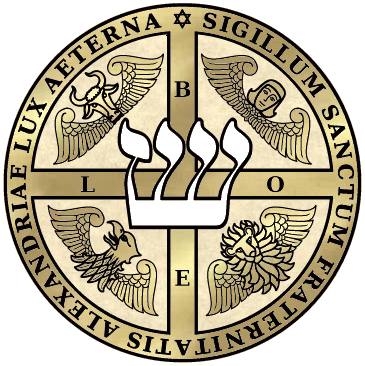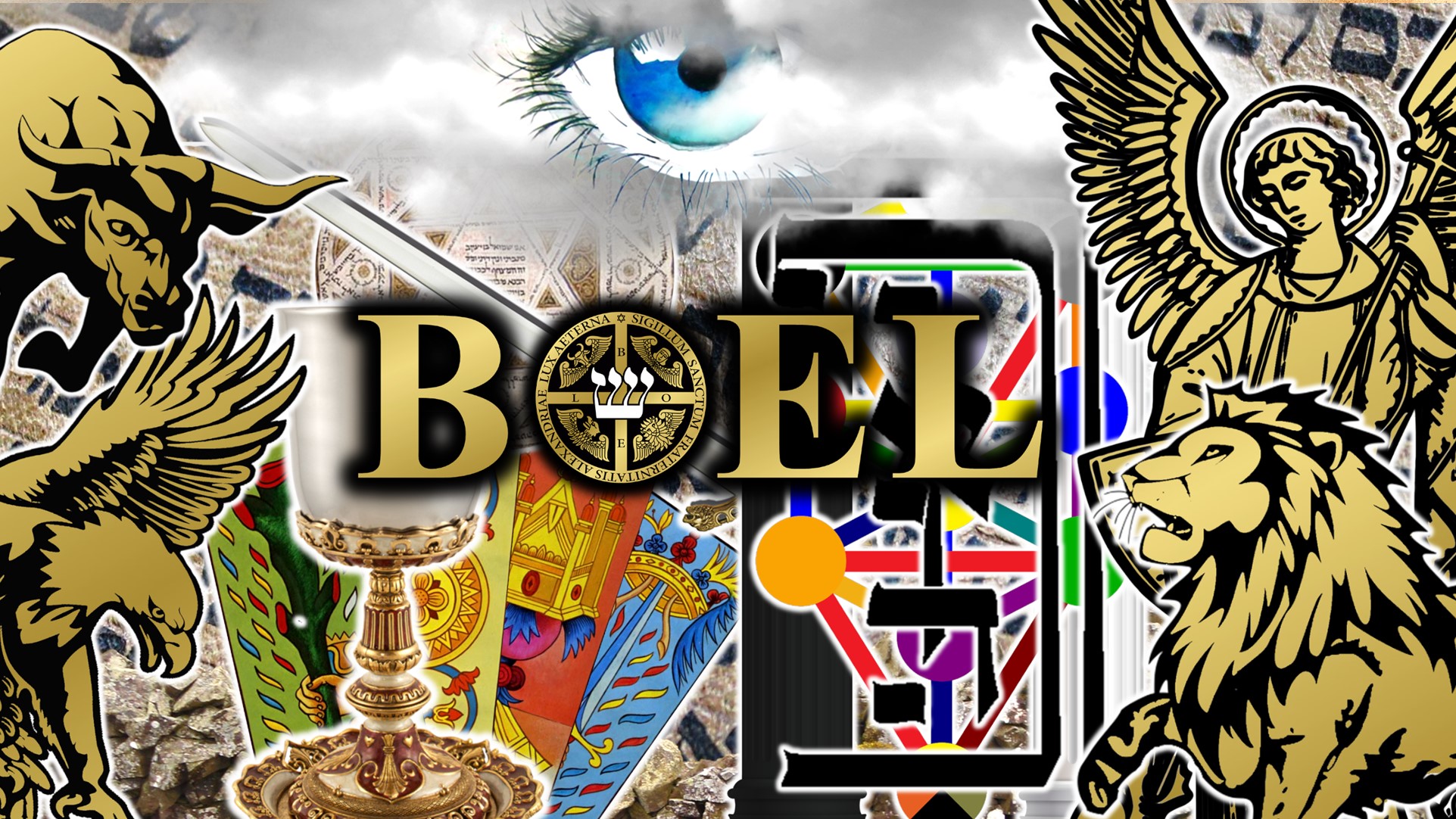© by Salomo Baal-Shem 2007
We are asked again and again by young people whether they can take part in a mystery training even if they are not yet of age.
I would like to say one thing right away. Mystery training and magical education is a serious matter and requires perseverance and patience. Do you think you have the necessary inner maturity for magical training? Think for a moment … and then go on. …
…If the answer was yes, then you should also have patience and understanding if you cannot achieve everything immediately. It takes many years to learn magic and anyone who loses interest after a few months is certainly not suitable for such training. Are you still ready for it? …
Now we come to the question you have surely been waiting for: Can you participate in our training as a young person or underage teenager? Basically, every participant has to be of age. So far we have not made any exceptions to this rule.
If a teenager is over sixteen AND the parents are open-minded and explicitly allow a training AND the minor only participates in theoretical sessions and meditation exercises, one could actually make an exception, but the duty of supervision and subtleties of the legal system could still make this difficult.
As I said, we haven’t made an exception yet. If you really want to do it, it is probably best to take this situation, which arises from your early interest in magical subjects, as a serious test of your patience and discipline, and lay the foundations for later training. It is worth waiting.
Here you will find much advice to help you prepare for your Mystery Training. When the time comes, and you have prepared yourself well, then you will certainly make great successes quickly and so the waiting time will not be of any further importance. I advise you, however, to keep your hands off all books for “young witches” and similar nonsense, what you learn in them you will have to painstakingly get out of the habit again later. By the way, if you think that you already have enough inner maturity for serious magical training, then you can certainly have the patience to wait a few years. By the way, many of the contents and exercises listed below are things that students of magic urgently need and will have to catch up on intensively later, so if you learn these topics now, you can hit the ground running later. So you’re really not losing anything, you’re already starting your magical education now, albeit with content and exercises that may not all be obviously related to magic).
Let’s start with the basics: What can you do to build up a solid theoretical knowledge base?
Maybe you can’t read so many books on the following topics or your parents don’t want you to. In this case, I advise you not to waste your time with dubious texts on the internet. Look for reputable sites and in any case try to focus on the following theoretical areas of knowledge that are particularly useful for magical training:
Some of these areas of knowledge may even seem boring to you at the moment. We have written behind each area an explanation of what the knowledge area is useful for magical training.
Mythology:
Mythology is an important foundation of the Mysteries. In the myths, the knowledge of the Mysteries was presented in symbolic form and in such a way that the soul can easily absorb it. Actually, myths are also very exciting to read, because they are basically beautiful stories of adventure, although some books are written a little dry. Don’t worry, once you get used to the ancient style of writing, they will become very lively and exciting. You can also find many myths on the internet.
History:
A good knowledge of history, especially of early civilisations, the ancient world and the Middle Ages, is very useful for the study of magic. If you want to work seriously with the old magical traditions, a sound understanding of these cultures is essential. Some magicians have to acquire this later, so if you learn it now, perhaps even at school, you will save yourself a lot of work. What you can’t learn at school, you might learn from good history novels or good non-fiction books. The internet is also a rich source of information. In particular, the history of Messopotamia, Egypt, Israel, ancient Greece and Rome, the Celts and Germanic tribes, as well as the European Middle Ages and the Reinessance is relevant to the study of the Western Mysteries.
Psychology:
Anything that helps you better understand the human soul is extremely useful for the study of the Mysteries.
Religion:
The more you know about the different religions, especially those of the Western culture, the better. But also a look at other cultures is often very enriching.
Art:
There are many areas that can become important here. For example, the architecture of ancient temples, the design of ancient crafts, but also handicrafts, if they are offered in your school. Ideally, a mage should make his own magical tools. Almost any craft can be useful here, even those you wouldn’t expect. For example, when I wanted to make my first robe, I had to learn sewing. (I found sewing classes boring at school, so I had to catch up later).
German:
Interpreting literature is an important skill for understanding the deeper meaning of myths and legends. Poetry is the basis of all spells. Learning how poetry is constructed is invaluable if you want to write your own spells.
Latin:
If you know Latin well, then you can read many medieval magical and alchemical manuscripts in the original.
Ancient Greek:
If you are good at Ancient Greek, then you can read the original texts of the Greek mysteries.
Hebrew:
If you are fortunate enough to be able to learn Hebrew, then this is an important aid to a deeper understanding of the Qabbalah and also you can read the magical and mystical texts of the Qabbalah in the original.
English:
Many good books are only available in English and so good English is a great advantage.
Chemistry:
Chemistry actually came out of alchemy, and if you ever become interested in it, then basic knowledge of chemistry will obviously be of great use.
Biology:
Botany is very useful for herbal magic, physiology helps you understand the human body as a carrier of the human soul and is also very useful for use in (self-)healing. Knowledge of medicine / first aid is also useful. (A healer should always work with medicine.) Knowledge of evolution is an important basis for understanding man and his position in the grand scheme of the universe.
Physics:
Astronomy (as the basis of astrology) is most important here. But the fundamental laws of physics are also a basis of knowledge for the magician. Since late antiquity, the study of higher principles has been called metaphysics (i.e. “that which goes beyond physics”) and many scholars assume that one should first know the basics of physics before trying to fathom the deeper and more hidden laws of nature. (By the way, did you know that Newton was an occultist and wrote many treatises on occult subjects such as alchemy and astrology)?
Mathemathics:
Basic mathematics is important for number mysticism, and higher mathematics trains logical thinking, which is essential for the serious magician. (By the way, did you know that Pythagoras was the founder of a mystical community, the “Pythagoreans”, who investigated the secrets of the universe)?
Perhaps you find some of this advice a little “pedagogical” and you are not entirely wrong. We believe that a student of magic should also be successful in his or her everyday life. For you as a young person, this means that good school grades are the best prerequisite for serious magical work. Remember, every true magician is also a smart and educated person. Or do you think that Merlin, Gandalf or Dumbledore have a poor general education?
(When I was at school, I thought school was stupid too, but look at it this way, even if school is stupid, remember that knowledge is not stupid, because “knowledge is power” – and that goes for wizards too).
Are there practical exercises a young person can do to learn magic?
Yes, there are. One of the most important prerequisites for magical work is a good visualisation ability. There are many useful exercises, such as “Kim’s game”, which train visualisation skills. Many students of magic progress more slowly in their training because they lack the ability to visualise. You can now build this up intensively and thus gain an optimal advantage.
What about meditation and ritual? You should keep your hands off rituals for the time being. Rituals can mess up your life and as a teenager you are still growing and have enough to do with hormonal changes. Magic affects the endocrine system of the body and that has enough to do in your current phase of life.
Meditation and ritual are not recommended without personal supervision. (Simple relaxation exercises excepted.) Unless there is a competent and experienced person to advise and help you, I cannot advise such techniques. (I know that you may be thinking of trying other instructions, and perhaps you have, but I can tell you from experience with many students that if you try anything on your own now and then go on to do some serious magical training, you will probably have to break a lot of “bad habits” and then those who start from scratch will quickly overtake you because they don’t have all these problems. In contrast, the exercises we suggest are a good preparation and will give you an optimal starting point).

